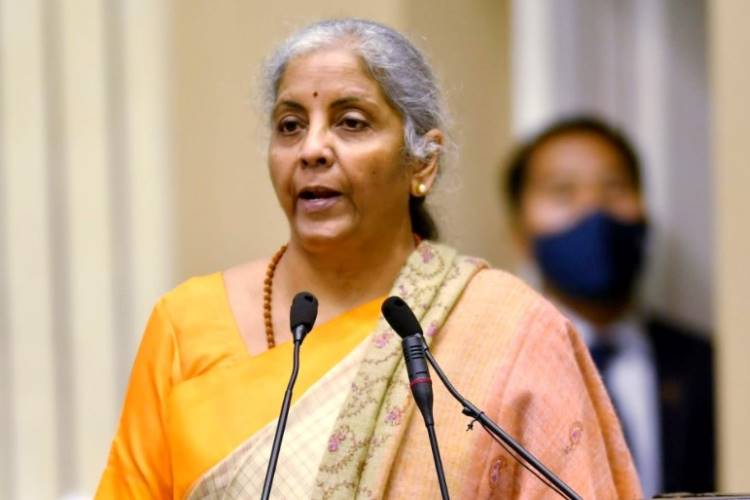
Budget 2022 and economic revival: The Union Budget is more of a policy statement than an accounting exercise. Therefore, the country expects finance minister Nirmala Sitharaman to come up with a vision for the Indian economy, which is still reeling under the impact of the Covid-19 pandemic. The world economy and Indian economy have already suffered from prolonged uncertainty. The world suffered losses in terms of jobs, education, and the health of the labour force. So, the Budget should ensure the stakeholders that the country has a well-thought-out plan for recovery.
Labor and capital are the essential inputs for economic growth. The pandemic affected labour in India. Many migrant labourers went back home. Few returned but others are still struggling in villages. The private sector and commercial banks also suffered because of the slowdown. Hence, Budget 2022 has to devise a roadmap for labour and capital.
READ I Budget 2022 must keep focus on economic revival amid Omicron surge
Budget 2022 must cushion Covid-19 impact
Budget 2022 will be unique as it is being prepared in the midst of the third wave of Covid-19 and uncertainty about the future of the global economy. Internationally, there are different winds blowing with the UK declaring that pandemic is over and the US is on the verge of reversing the interest rate cycle. In contrast, there is research pointing out that the global economy is still vulnerable and that growth prospects will improve only by 2023.
In India also, the impact of the pandemic was varied across states. The absence of migrant labour is impacting agriculture and manufacturing, especially MSMEs, in many states. Therefore, the government has to support the economy and should not worry too much about fiscal deficit. This is not recommending fiscal profligacy, but one should not be tied down by the targets set by the Maastricht Treaty which itself are under review. The need of the hour is to lend support to all segments of the economy, ranging from consumption to production.
Budget 2022 will have to serve two purposes — providing immediate support to different sectors of the economy and planning for the recovery phase from 2023 to 2025. In the immediate support to individuals, the government could consider raising the threshold of income tax which can provide impetus to consumption demand.
READ I Budget 2022 must break the vicious circle of unemployment, aggregate demand
New revenue sources
The government could also consider recovering some amount of tax forgone by raising expenditure tax on goods and services purchased by higher income groups. This will also help reduce the widening income inequalities. The pandemic has hurt many household budgets which has reflected negatively in expenditure on children’s education. While some parents have shifted children from private schools to government schools, others have stopped sending children to school altogether. Consequently, many schools have closed down.
The government could consider direct benefit transfer (DBT) to parents of school-going children. In any society during financial distress, the medical expenditure of the elderly suffers immediate neglect. The government could consider DBT to the elderly in terms of enhanced monthly pension for at least two years.
The global crisis has demonstrated the ill-effects of the monopoly growth of China in global supply chains. To offer an alternative to the global economy, the government could consider infrastructure support in the Northeast to prepare the area for international investment. Tax incentives and tax holidays can induce domestic industry to move into the Northeast, creating economic activity in the region and providing the pull factor for global industry.
READ I Looming crisis: World must develop self-care models for common ailments
No time for fiscal consolidation
MSMEs are the largest employers after agriculture and have suffered the most during the crisis. The government has been providing some support through NBFCs, but the feedback from MSMEs has been that the support has not reached the grassroot level. In fact, MSMEs are a very heterogeneous group and most of them do not have deep pockets to survive the pandemic. The government would have to provide a liberal accommodation in terms of tax holidays to MSMEs to ensure the survival and employment generation of MSMEs.
The medical industry in India, including pharma, has established its presence in terms of quality. To make India a destination of medical tourism, the government could consider incentives to promote indigenous medicines as well as set up hospitals with ultra-specialisation. These can be organized in special economic zones in different parts of India, so that the reputation built over the pandemic can be capitalised and translated into becoming a global medical hub for research and treatment.
The pandemic has caused immense harm to migratory labour which needs to be productively engaged now. They need to be weaned from unproductive MGNREGA work. The need is to have special schemes for village and cottage industries through mudra loans. Each mudra loan dispersed has the potential to create a few jobs. To enhance the efficiency of expenditure, Panchayati Raj Institutions (PRI) would be helpful as they are the closest to the people.
In this time of stressed finances, the government should continue to purse disinvestment, and privatisation. Further, given the stress in the economy, the government will have to continue supporting the banking system. It should pursue privatisation of banks too and may also consider placing a few banks under an asset monetisation programme.
There has been a structural break in the global economy as well as in the domestic economy. The global and domestic economy will now begin to normalise after the third wave of Covid-19. The government’s plan should be two-pronged — one to revive the domestic economy and second to gain a firm foothold in the global economy.
Budget 2022 should make an effort to provide a roadmap on the following: a) role of banking sector including NBFCs; b) Role of MSMEs in industrialization; and c) enhancing the role of India in global economy. The government should capitalise on this rare opportunity when the world is attempting a reset, and ensure that India is able to improve its status in the global financial architecture.
Dr Charan Sigh is a Delhi-based economist. He is the chief executive of EGROW Foundation, a Noida-based think tank, and former Non Executive Chairman of Punjab & Sind Bank. He has served as RBI Chair professor at the Indian Institute of Management, Bangalore.

